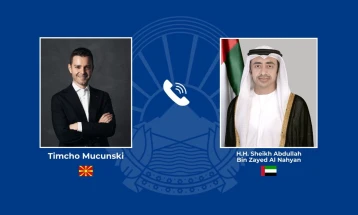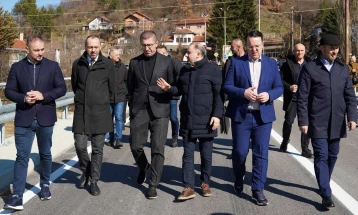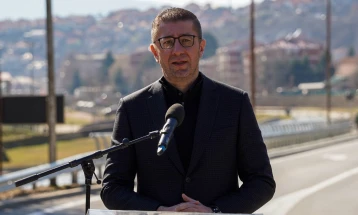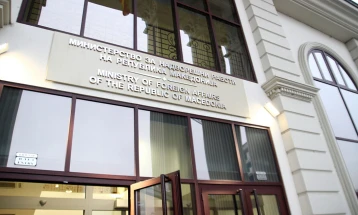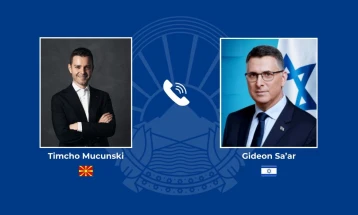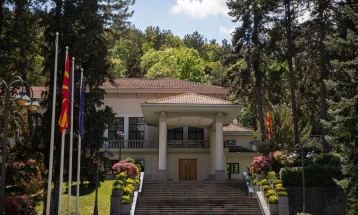Ministry of Education developing dual vocational training law
- The Ministry of Education and Science will formally introduce dual vocational training in high schools through a separate law regulating apprenticeship opportunities, according to Minister of Education and Science Vesna Janevska on Thursday.
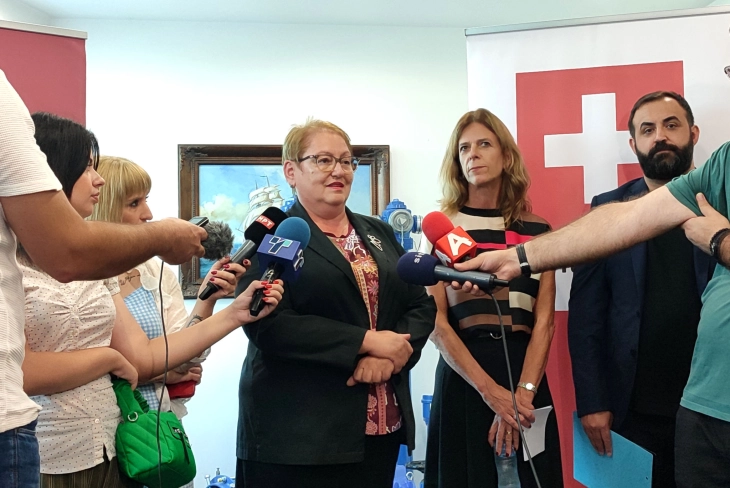
Skopje, 5 September 2024 (MIA) — The Ministry of Education and Science will formally introduce dual vocational training in high schools through a separate law regulating apprenticeship opportunities, according to Minister of Education and Science Vesna Janevska on Thursday.
"We are drafting an entirely new law in complete and continuous communication with the Economic Chamber," Janevska said, "It will regulate relations between schools and the business sector, which until now have been based on good faith."
Visiting the KAZ Group, which has offered apprenticeships to Vlado Tasevski High School students for the past three years in cooperation with the Economic Chamber and the Swiss Embassy, Janevska said the country had been developing the dual vocation training concept over many years, preparing generations of students to enter the workforce.
This year, the education minister said, out of a total of 17,000 high school students, as many as 12,000 were enrolled in secondary vocational education, and there were 62 schools offering dual vocational training, with 4,000 freshmen enrolled in 2024-25.
"Additonally, the Ministry of Education and Science grants scholarships to children who enroll in dual education to continue learning through work and to improve our businesses," Janevska said, adding this was a mechanism for young people to find work in their own country and for the country not to have to import skilled workers.

Swiss Ambassador Veronique Hulmann said Switzerland supported the dual vocational training reforms so young people could get decent jobs and the private sector could have high-quality workers.
"This is extremely important. In my conversations with the KAZ Group director, this is exactly what she stressed that they need: highly skilled [people], something really important for the future," Ambassador Hulmann said.
"Switzerland already has a dual vocational education system, which is important to respond to the needs of the private sector," she said, adding that the goal of the cooperation was not to copy the Swiss model but to share experiences, positive practices and lessons in developing vocational education adapted to the country's needs.
"The Swiss program covers 12,000 students and about 500 companies. This partnership between the Ministry of Education, the KAZ Group and the vocational education institutions, is a good start," Hulmann said, urging the state to do even more in promoting learning and cooperation.
Economic Chamber executive director Antoni Peshev said the business community began to consider ways of addressing the lack of skilled workers in the country 15 years ago.
"The only solution was to start thinking about how to produce that workforce in our country. What is happening today is just a confirmation that we were on the right path," Peshev said.
He said the business community welcomed the support from Switzerland and other countries as well as the Ministry of Education and Science's readiness to develop a dual vocational education law.
Peshev noted that in the last five years, from the initial 10, the number of companies involved in the dual education process had increased to 500. He also said they had also educated and involved more than 1,300 mentors.
Almost 70 percent of high schoolers who went through the dual vocational training, Peshev said, remained to work in the country. In Switzerland, Ambassador Hulmann pointed out, that figure was around 75 percent.

KAZ Group's Aneta Korobkina said that it was an honor for them, the only company for the production of plumbing equipment in the Balkans, to cooperate with Vlado Tasevski High School, the Economic Chamber and the Swiss Embassy.
She highlighted the importance of putting into practice the students' theoretical knowledge. "This is crucial, because when theory meets practice, we get more professional, better staff who can come to concrete solutions much faster."

Vlado Tasevski High School principal Aleksandar Sibinovski pointed out the benefits of the apprenticeship program for the school, the students, and for the participating companies.
"Learning in the classroom prepares our students with prior knowledge when they come to the companies so they can immediately get involved into the production process with the help of a mentor," Sibinovski said. mr/
